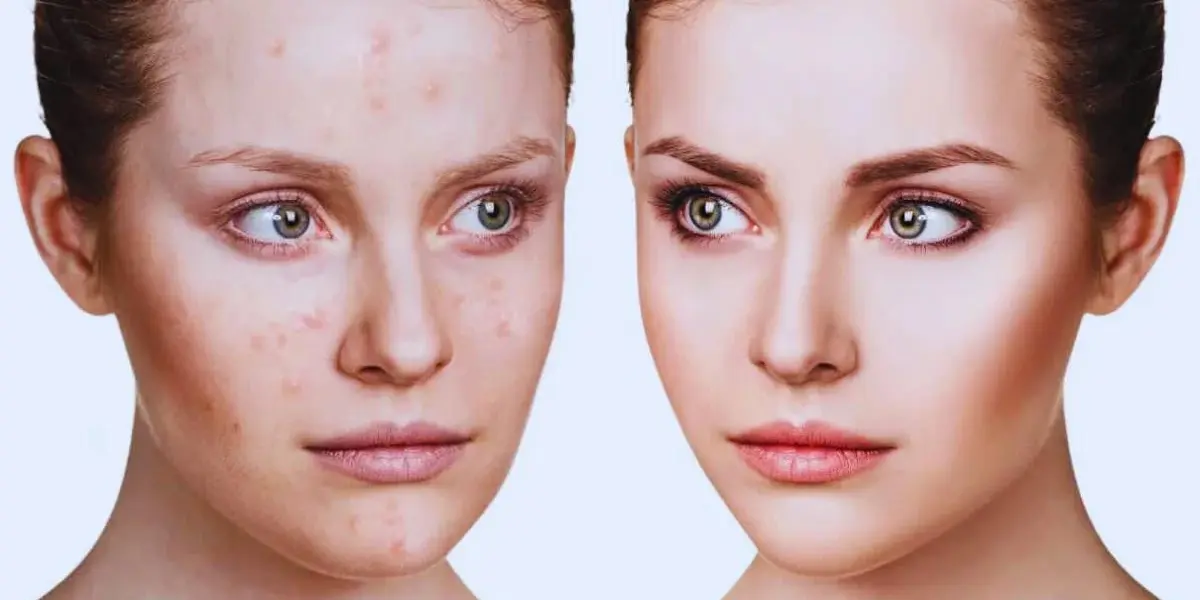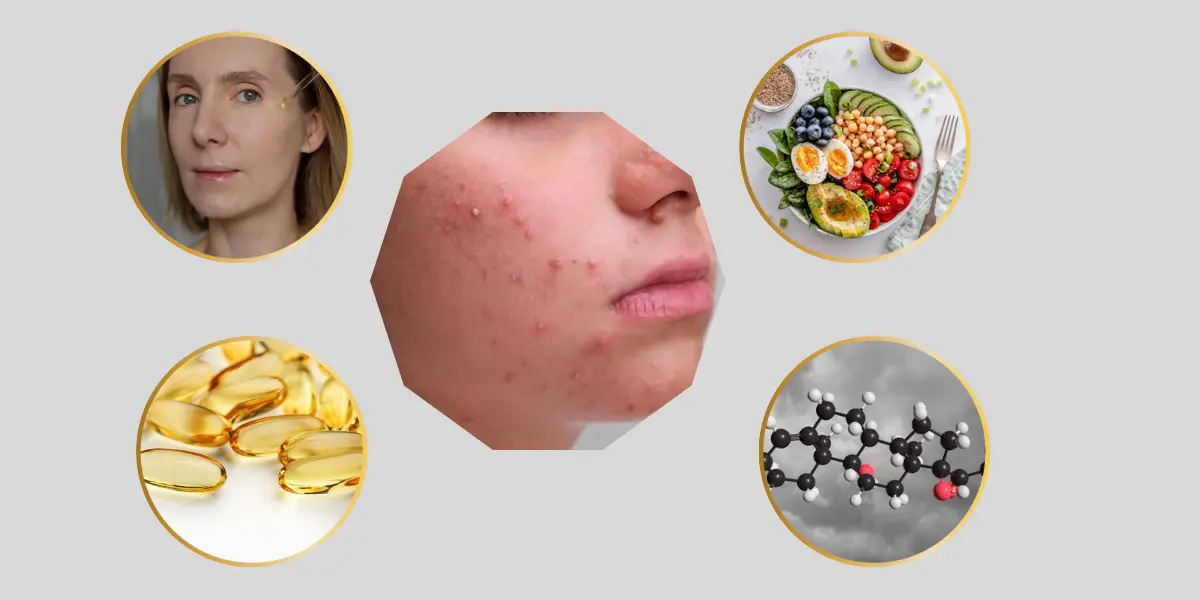Every person goes through acne for a few months in their lives. When teenagers go through puberty, they go through many physical and mental changes, and acne is one of those changes as well. Acne is simply caused by increased hormones in your body, testosterone in boys and estrogen in girls.
As you grow older, your acne also starts to dissipate. Some might take longer to be acne-free due to hormonal imbalances in them.
According to research, some women over the age of 20 tend to use birth control more often, which dampens the estrogen in them a little. When they get off the medication, an increase in hormones can cause sebum formation, resulting in acne outbursts.
If you are trying to reduce your acne without depending on birth control pills, then keep reading because here you will learn about all the sources and natural treatments for hormonal acne.
3 Major Sources Of Hormonal Acne: Strength Your Skincare Journey
Regarding acne outbursts, hormones play a big role in sebum formation. Some other things can also cause acne formation on your face. Here are some of the things that can give you acne problems even after puberty.

1. Dead skin cells
When you go out, your skin gets exposed to UV rays, pollution, and other dust particles, which damage your skin and cause dead skin cells. These dust particles and dead skin cells clog your skin pores, and sebum starts to form in those pores. These pores then swell and become pimples and cysts.
2. Irregular sleep pattern
Lack of sleep is one of the main reasons that causes acne. Whether you have normal acne or hormonal acne, you need a good night’s sleep to recover your skin from the damage. Lack of sleep can result in bad skin health in the long run.
3. Hormonal imbalance from stress
Stress increases the cortisol levels in your blood, which promotes the formation of sebum in your skin pores. Stress can affect your hormonal balance and reduce your skin’s immunity. This makes your skin more sensitive and prone to damage.
How To Tell If Acne Is Hormonal Or Bacterial?
Distinguishing between hormonal and bacterial acne is crucial for effective treatment. Hormonal acne typically manifests as deep, cystic bumps around the jawline and chin, influenced by hormonal fluctuations. Bacterial acne, on the other hand, appears as inflamed, pus-filled pimples caused by bacteria.
Hormonal acne may worsen with menstruation, while bacterial acne can be triggered by factors like poor hygiene. Consult a dermatologist for a precise diagnosis and personalized treatment plan, as addressing the root cause is essential for successful acne management. Combining targeted skincare and lifestyle adjustments can help achieve clearer, healthier skin.
Treatments For Hormonal Acne
When it comes to treating your hormonal acne, there is no necessary reason for you to use birth control to reduce the acne. You can always go for more natural and effective ways to treat your facial pimples. Some of the most effective natural remedies for hormonal acne are mentioned here. Take a look:

1. Salicylic Acid
Now it’s time to worry less because salicylic acid is not harsh on your skin, but it will treat your acne in a matter of weeks. Salicylic acid unclogs the pores of your skin, removes oil and bacteria, and makes your skin more hygienic. There can be mild side effects like skin peeling and irritation, but salicylic acid will treat your acne forever.
2. Vitamin E
Over-the-counter vitamin E capsules are always available at your local medical shop. Get them and start applying it on the affected area and let it dry. As vitamin E is fat-soluble, it nourishes your skin cells immediately and recovers them from any type of damage.
3. Restrict Your Diet
Diet is always the sole reason for almost all your health issues. Hormonal acne may not come in that series, but your diet will increase your acne if you are not careful enough. Follow a less fatty diet, and consume more protein and fiber to soothe your digestive system and maintain your hormonal balance.
4. Reduce Your Cortisol Levels
Cortisol level is mostly increased in your body due to stress. Stress can trigger other hormones as well, which can lead to more acne. Stress can cause rashes, redness, and cystic pimples as well, so stress as little as possible. Doing physical activities and being positive most of the time of your day will help you increase your skin immunity and reduce acne eventually.
Conclusion
Hormonal acne may be irritating and can be embarrassing, but remember that acne is also a natural response of the human body. So, treating it naturally is also easy; always try to maintain your skin hygiene by cleaning it at least twice daily. Choose a suitable moisturizer, and eat healthy; these things are just enough for you to have healthy and acne-free skin.